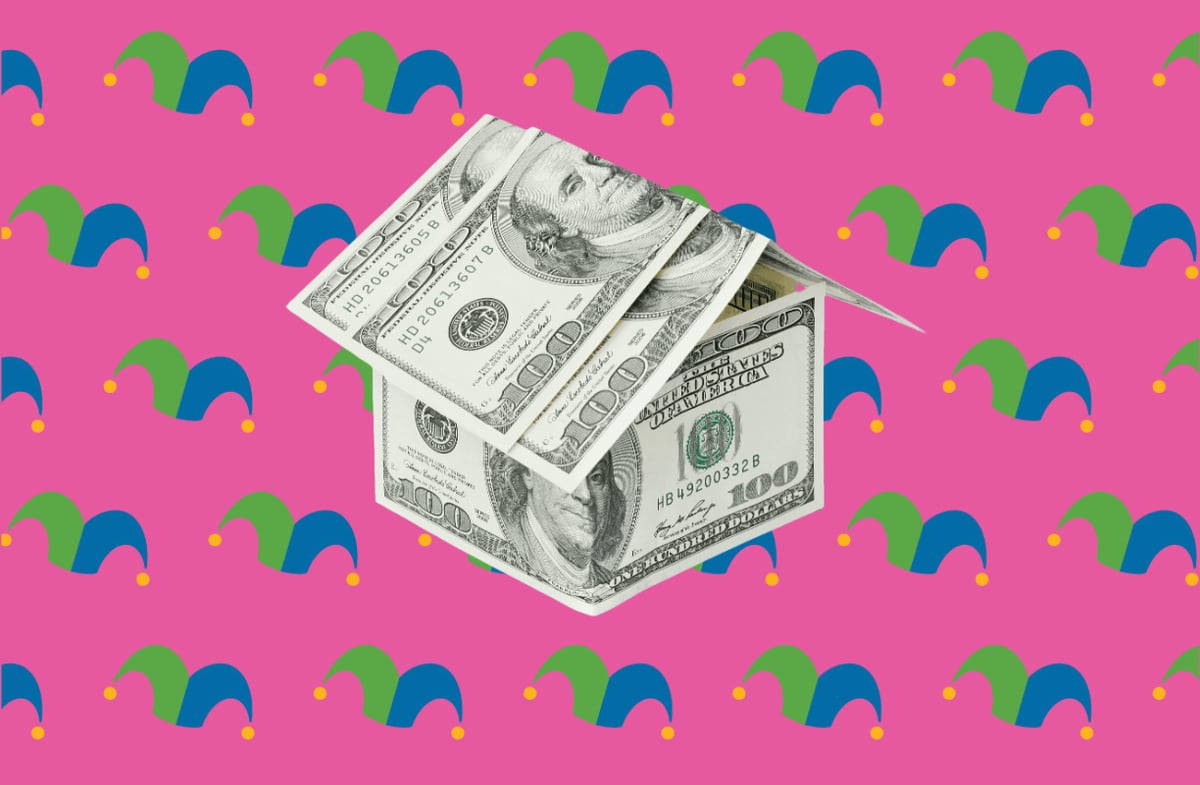How Much of an Emergency Fund Do You Need if You're Buying a House?
It's important to have ample cash reserves as a new homeowner. But how much is enough? Read on to find out.

Recent data from SecureSave finds that 63% of Americans don't have enough savings to cover an unplanned $500 expense. But when you're buying a home, the bill for a single repair could well exceed the $500 mark.
That's why it's so important to have a solid emergency fund when you're taking on the expense and commitment of homeownership. But just how much money should you keep in your savings account in that situation? Let's find out.
Save enough to cover three months of bills at a minimum
The general consensus when building an emergency fund is that it's important to have enough cash to cover three months of essential expenses at a minimum. The logic is that if you were to get laid off, you'd have money to tide yourself over while looking for work.
In the context of owning a home, a three-month emergency fund is likely to provide you with enough money to cover an unexpected repair -- even a larger one. Let's say your essential monthly bills come to $3,500, so you build a $10,500 emergency fund. If your water heater goes kaput and needs to be replaced, that sum leaves you with more than enough money to cover the cost, which Angi puts at $880 to $1,789 (with an average cost of $1,311).
For better protection, aim higher
A three-month emergency fund certainly gives you a decent amount of protection as a homeowner. But let's face it -- there's no rule stating that you'll only face one big home repair per year. What if you end up having to replace a water heater in June and then your heating system malfunctions in October, followed by a major roof repair in February?
It could be a good idea to aim for a six-month emergency fund, rather than three months. That also buys you more protection in the unfortunate but possible event that you wind up out of a job at the same time a major home repair pops up.
Save enough to address issues found during your home inspection
You may be buying a home that passes its inspection with flying colors, only to have issues arise shortly thereafter without warning. But if your home inspection revealed issues that are likely to come to a head in the coming years, then you may want to get estimates of those repairs and aim to add the sum of addressing them to your emergency savings goal.
For example, let's say you want a three-month emergency fund for protection from a layoff. If, during your home inspection, it was discovered that your air conditioning system is functional but very old and wearing down, it's a sign you may need to replace that unit somewhat soon. If you're given an estimate that brings the cost of that work to $4,500, then you should aim to pad your emergency fund by that amount.
All told, you need cash reserves on hand when you own a home. At the very least, aim for a three-month emergency fund. But if you can do better, you'll have that much more protection -- and you'll gain that much more peace of mind.
Alert: highest cash back card we've seen now has 0% intro APR until 2025
This credit card is not just good – it's so exceptional that our experts use it personally. It features a 0% intro APR for 15 months, a cash back rate of up to 5%, and all somehow for no annual fee!
Click here to read our full review for free and apply in just 2 minutes.
We're firm believers in the Golden Rule, which is why editorial opinions are ours alone and have not been previously reviewed, approved, or endorsed by included advertisers. The Ascent does not cover all offers on the market. Editorial content from The Ascent is separate from The Motley Fool editorial content and is created by a different analyst team.The Motley Fool has a disclosure policy.























